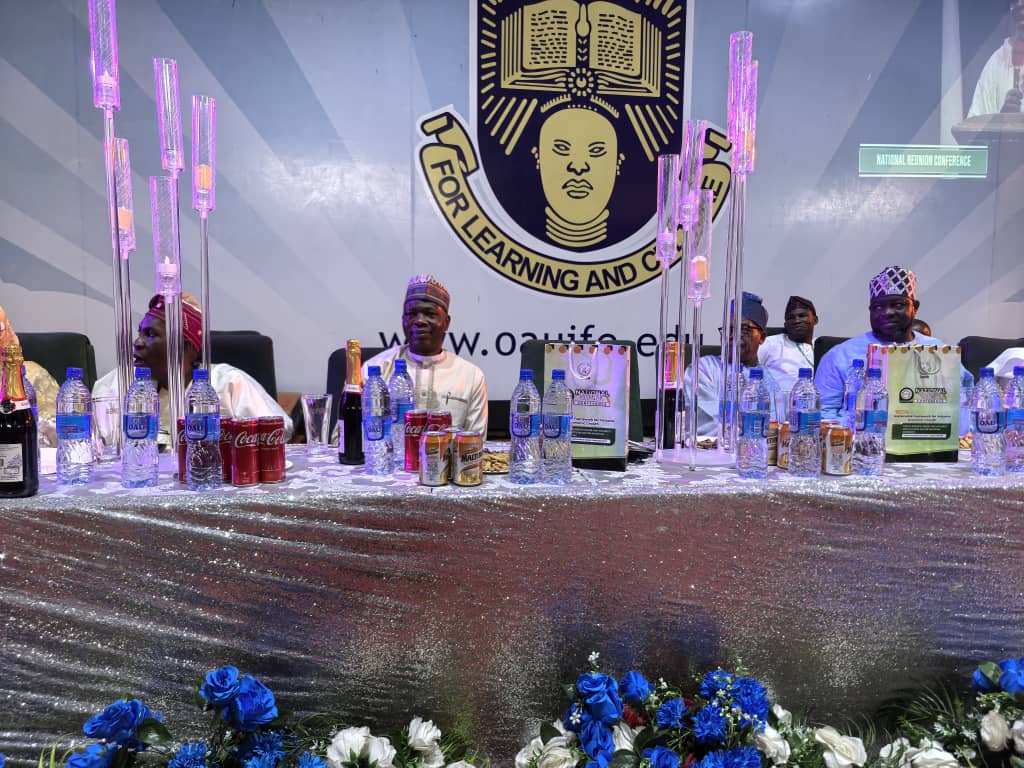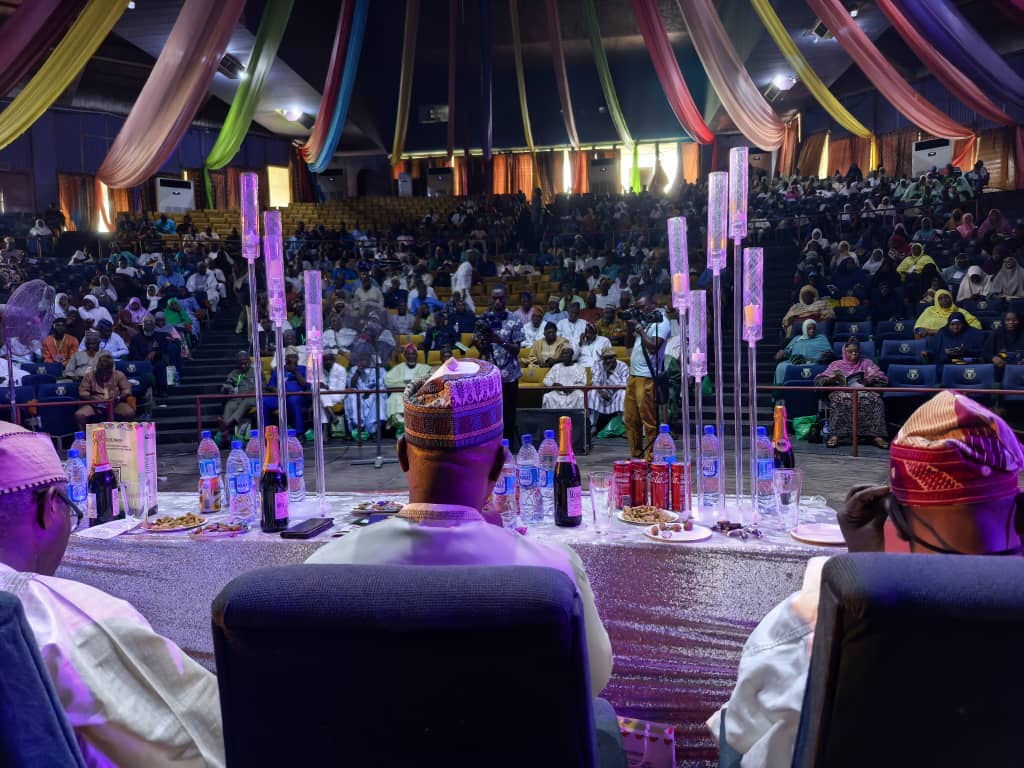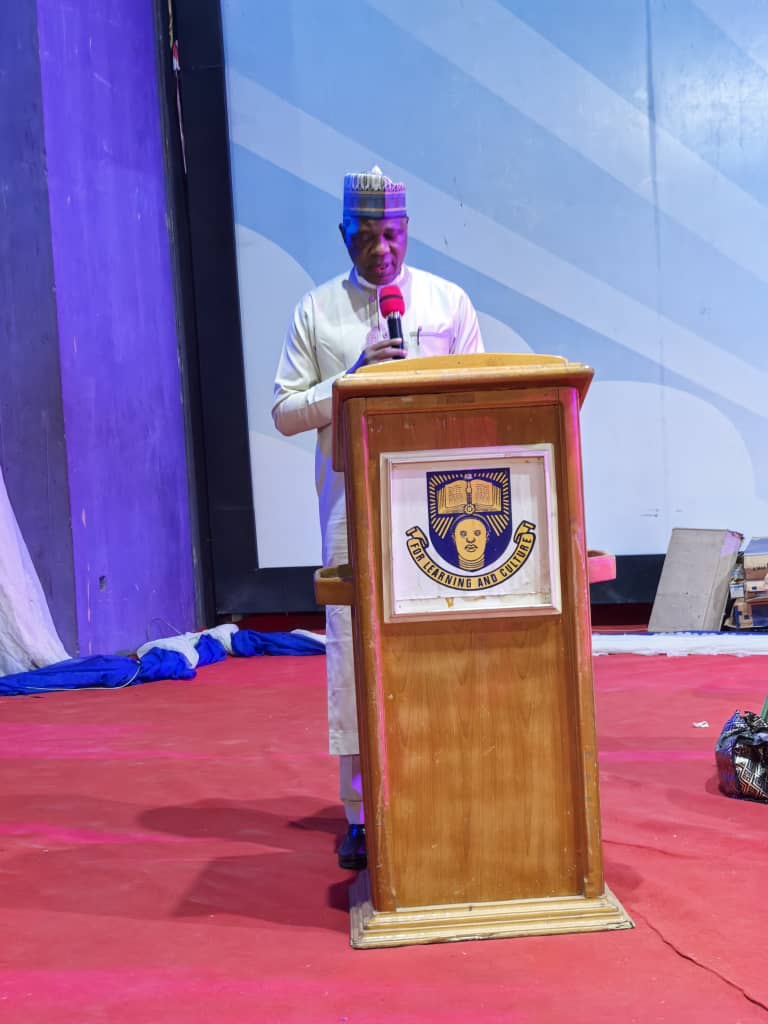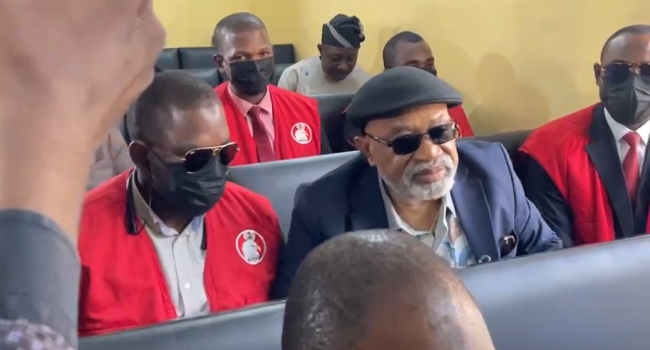Listeners:
Top listeners:
-
play_arrow
104.9FM Best rock music demo
-
play_arrow
Demo Radio Nr.1 For New Music And All The Hits!
-
play_arrow
Demo Radio Techno Top Music Radio
-
 play_arrow
play_arrow
Police Commissioner Launches Weapon and Riot Control Training for FCT Officers Democracy Radio

By Oluwakemi Kindness

The Comptroller-General of Customs, Adewale Adeniyi, has called for the adoption of the Nigeria First initiative as a cornerstone for enhancing cross-border trade and safeguarding national security.
Adeniyi made the call while delivering a keynote lecture at the Obafemi Awolowo University Muslim Graduates’ Association (UNIFEMGA) annual conference in Ile-Ife, Osun State, at the weekend.
Speaking on the topic “Cross-Border Trade and Security Implications on the Nigerian Economy: Taking Advantage of Global Trade Dynamics”, CGC Adeniyi emphasises the need for strategic alignment between trade facilitation and security imperatives.
According to a statement on Sunday, by the NCS spokesperson Abdullahi Maiwada, the Customs Boss reveals that Nigeria’s trade value surged to ₦196.94 trillion in 2024, marking a 179.3% increase over the previous year despite persistent security threats across various borders.
“Nigeria’s economic prosperity hinges delicately on our ability to strike an optimal balance between security imperatives and trade facilitation,” he said.

Highlighting the achievements of the Service, the CGC disclosed that the NCS collected a record ₦6.1 trillion in revenue in 2024, exceeding its target by 20.2%. He described the feat as a testament to the Service’s resilience and innovation in a complex operating environment.
The CGC while dissecting region-specific security challenges and their implications on trade, notes that in the Northeast, insurgency continues to disrupt established trade corridors.
However, he notes that collaborative initiatives such as the World Customs Organisation’s Project Securité par Collaboration (SPC++) have provided alternative trade mechanisms suited for conflict-affected areas.
In the Northwest, he points to the impact of banditry and kidnapping on mining operations, stressing the urgent need for integrated regulatory and security strategies.
He adds that cattle rustling in Northern Nigeria has crippled the livestock value chain, affecting associated industries like meat processing and leather production.
Turning to the Southeast, the CGC cited disruptions caused by secessionist movements, particularly on manufacturing hubs in Aba, Onitsha, and Nnewi. In the Southwest, he described the smuggling of petroleum products, arms, and restricted goods as a significant threat, disclosing that contraband valued at ₦35.29 billion was intercepted in 2024 alone, with an additional ₦7.7 billion worth seized in Q1 2025.
He said, “These regional security challenges present Nigeria with a choice: remain trapped in a cycle of reactive responses or transform our hard-earned expertise into strategic advantage within the AfCFTA framework.”
The CGC explaines that the Nigeria First initiative has already taken root within the Service’s operations, particularly through the procurement of locally assembled vehicles.
“All operational vehicles purchased by the Nigeria Customs Service this fiscal year were sourced from Nigerian auto plants,” he said, noting that the move was a deliberate step to support domestic industries and conserve foreign exchange.
Written by: Democracy Radio
#Customs Nigeria #NCS #Nigeria first
Similar posts
Copyright Democracy Radio -2024


